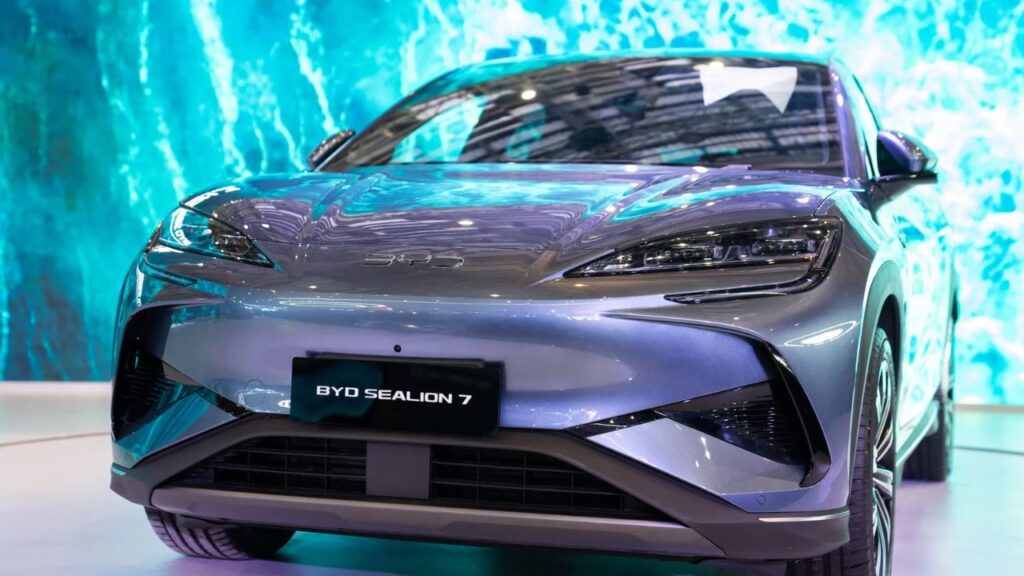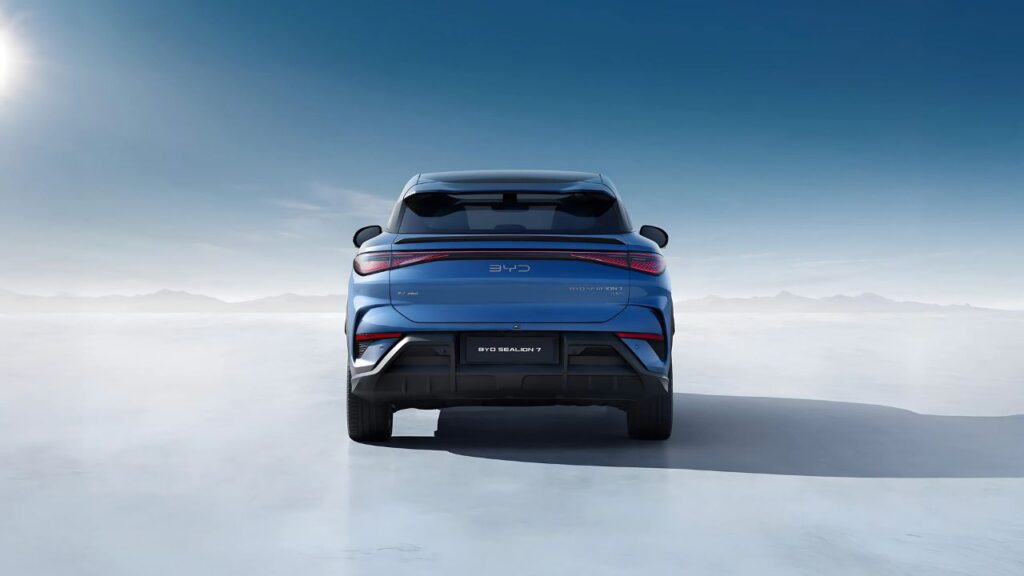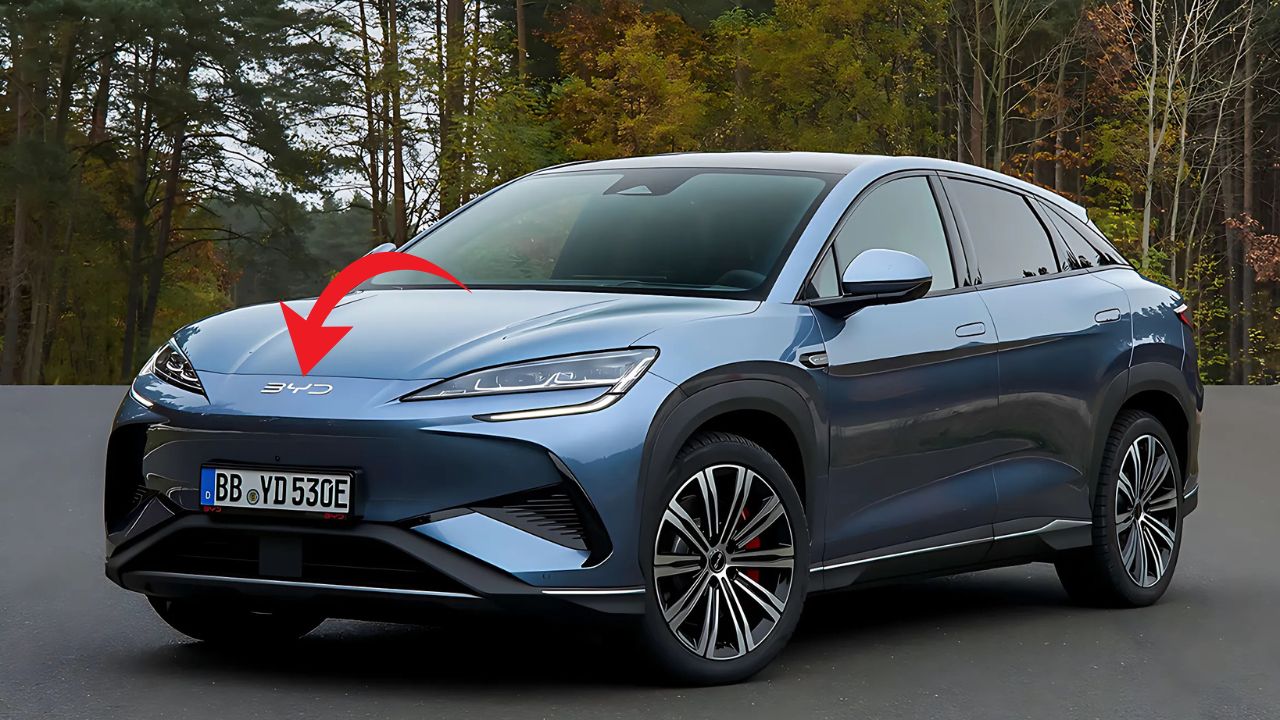The electric vehicle market just got more exciting. BYD’s latest creation, the Sealion 7, promises serious performance without breaking your budget.
This isn’t your typical economy electric car. The Sealion 7 packs genuine power while keeping prices reasonable for everyday drivers.

What Makes the BYD Sealion 7 Special
BYD has built something different this time around. The Sealion 7 combines high-end features with a price tag that won’t scare away regular buyers.
Most electric vehicles in this power range cost significantly more. BYD decided to challenge that expensive norm with their newest model.
Power That Matters
The 390kW output isn’t just a number on paper. This translates to real-world acceleration that rivals much pricier vehicles.
Electric motors deliver instant torque, making city driving and highway merging effortless. The Sealion 7 proves that affordable doesn’t mean compromising on performance.
Design Philosophy Behind the Numbers
BYD engineers focused on practical luxury rather than flashy gimmicks. Every feature serves a purpose while maintaining cost efficiency.
The interior reflects modern sensibilities without unnecessary complexity. Simple controls and intuitive layouts make daily driving pleasant rather than overwhelming.
Performance Specifications That Matter
Raw power numbers tell only part of the story. The Sealion 7’s engineering creates a balanced driving experience across different conditions.
Battery technology advances allow this performance level at competitive pricing. BYD’s manufacturing expertise keeps production costs manageable.
Acceleration and Handling Characteristics
Zero to sixty times compete with sports cars costing twice as much. The electric drivetrain provides smooth, consistent power delivery.
Weight distribution benefits from battery placement low in the chassis. This creates stable handling without sacrificing comfort on rough roads.
Range and Charging Capabilities
Real-world range exceeds most daily driving needs comfortably. Fast charging options reduce downtime during longer trips.
Home charging remains the most convenient option for regular use. The Sealion 7 works with standard charging equipment already installed in many garages.
Interior Features and Technology Integration
Modern drivers expect connected features without paying premium prices. BYD delivers essential technology without overwhelming complexity.
The dashboard layout prioritizes frequently used controls. Less common functions remain accessible but don’t clutter the primary interface.
Comfort and Convenience Elements
Seating provides genuine comfort during extended drives. Materials feel premium despite the competitive pricing strategy.
Climate control responds quickly and maintains consistent temperatures. Sound insulation keeps road noise to reasonable levels.
Safety Systems and Driver Assistance
Standard safety features match those found in luxury vehicles. Advanced driver assistance systems help prevent accidents before they occur.
Emergency braking and lane-keeping assistance work reliably. These systems enhance safety without replacing careful driving habits.
Market Position and Competition Analysis
The under-$60K price point creates interesting market dynamics. Few vehicles offer similar power levels at this price range.
Traditional automakers struggle to match BYD’s cost structure. This gives the Sealion 7 significant competitive advantages in many markets.
Comparing Value Propositions
European competitors typically cost $20,000 more for similar performance. American alternatives often sacrifice features to reach comparable pricing.
Japanese manufacturers focus on hybrid technology rather than pure electric power. This leaves room for BYD to establish market presence.
Target Customer Demographics
Young professionals appreciate the technology integration and performance. Families value the safety features and practical design elements.
Environmental consciousness drives some purchase decisions. However, most buyers focus on value and performance over environmental benefits alone.
Manufacturing Quality and Reliability Expectations
BYD’s manufacturing experience spans multiple vehicle categories. Their electric bus and commercial vehicle success provides relevant expertise.
Quality control processes developed for commercial applications benefit consumer vehicles. Fleet operators demand reliability that individual buyers also appreciate.
Warranty Coverage and Service Support
Comprehensive warranty coverage protects buyers from unexpected expenses. Service network expansion supports growing sales volumes.
Parts availability remains crucial for long-term ownership satisfaction. BYD’s global presence helps ensure reasonable service accessibility.
Long-term Ownership Considerations
Battery degradation patterns follow industry standards for premium cells. Replacement costs should decrease as technology advances.
Maintenance requirements stay minimal compared to internal combustion engines. This reduces total ownership costs beyond the initial purchase price.
Market Impact and Future Implications
The Sealion 7 represents broader shifts in electric vehicle accessibility. High performance no longer requires luxury pricing.
Other manufacturers will likely respond with similar value propositions. This competition benefits consumers through improved options and lower prices.
Industry Response Expectations
Established automakers face pressure to match BYD’s pricing strategy. Traditional luxury brands may need to reconsider their positioning.
Startup electric companies must differentiate through unique features. Simple cost competition becomes increasingly difficult against established manufacturers.
Technology Evolution Trajectory
Battery costs continue declining while energy density improves. Future models will likely offer even better performance-to-price ratios.
Charging infrastructure expansion supports broader electric vehicle adoption. The Sealion 7 arrives as supporting infrastructure reaches critical mass.
Purchase Considerations and Recommendations
Potential buyers should evaluate their specific driving needs honestly. The Sealion 7 works best for drivers who can utilize its performance capabilities.
Daily commuting patterns determine whether the range meets practical requirements. Weekend driving habits influence the importance of fast charging access.
Financing and Incentive Opportunities

Government incentives may reduce effective purchase prices further. Local utility companies sometimes offer additional rebates for electric vehicle purchases.
Financing terms vary significantly between different lenders. Shopping around for the best rates saves money over the loan term.
Timing Your Purchase Decision
Early adoption carries some risks but offers maximum incentive benefits. Waiting allows for real-world reliability data but may mean higher prices.
Model year changes typically bring minor improvements. However, the fundamental value proposition should remain consistent across years.
FAQs
What is the actual range of the BYD Sealion 7?
The Sealion 7 offers approximately 550 kilometers of real-world range under normal driving conditions.
How fast can the BYD Sealion 7 charge?
Using DC fast charging, the vehicle can charge from 10% to 80% in approximately 35 minutes.
Is the BYD Sealion 7 available in North America?
Currently, BYD focuses on Asian and European markets, with North American availability still under evaluation.

